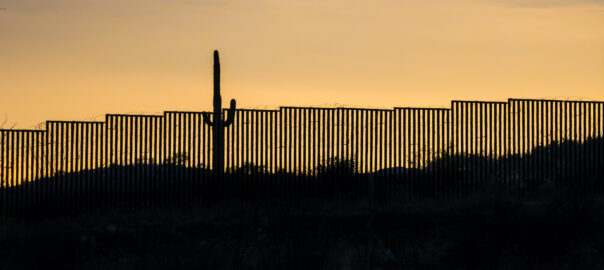I was in an airport restaurant recently and my server told me her family’s story of emigrating to the USA from Albania. After a decade of paperwork and hearings, and lots of hard work, most of the family members are now legal residents, and some are citizens. She asked me, “Why does the government tolerate the mess at the border with Mexico or let any Afghan into the country? We worked so hard to come legally, and they are giving more benefits to the people coming in illegally. Why?”
Here was a single mom, working 60 hours a week and grateful for her hard-earned citizenship upset about the chaos with “asylum seekers” and the “undocumented.” She also commented that she and her family had never taken a dime in welfare. How do we answer her honest query?
We start solving the current mess four ways: 1) learning from our history; 2) cultivating hope that solutions are possible; 3) finding courage to enforce current laws and reform broken systems; and 4) expose the nefarious motives of those who prefer anarchy over substantive solutions.
First, reckoning with our history helps us avoid arrogance as we see a rather challenging set of narratives. All nations and empires are founded with primary “tribes” and then learn to integrate others. In this essay, I am not focusing on the African slaves or treatment of Native American populations – those narratives are exceptional and warrant separate essays (coming soon in 2022!).
In the mid-19th century, the Irish potato famine sent many to our shores and they were often met with hostility by the WASP majorities. They, along with other Roman Catholic populations, were subject to marginalization and persecution. Over time, they found ways to assimilate and maintain their cultures, but as late as 1960 millions of American feared a Roman Catholic President for fear that JFK would be more loyal to the Pope that the USA.
The famous Ellis Island surge of the late 19th and early 20th century was a commendable moment in our history, yet there was extensive screening involved and not everyone was admitted. Many of these immigrants faced tremendous hardships, but America was the promised land for people fleeing poverty and persecution.
While Ellis Island welcomed millions, on the West Coast, The Chinese and Japanese immigrants were treated abysmally, especially the Chinese. The very people who labored on the transcontinental railway were subject to internment, severe economic restrictions and significant harassment. The scandal of the Japanese internment camps of World War II is well-documented, with justice too late in coming for many. A century later, both populations have flourished and consider themselves fully American while celebrating their cultures.
From the 1920s to the end of WWII, the USA closed her doors to most immigration and xenophobia was the order of the day. Even full knowledge of the Holocaust could not sway the State Department. When I share about the Middle East, this narrative will be prominent. We utterly failed as the land of liberty.
Since the 1960s, immigration policies have varied greatly and many more have found homes in our land. It is important to note that many Democrats, who today want unfettered immigration, opposed welcoming the Vietnamese refugees fleeing communism after the 1976 takeover of Saigon. It is stunning reading the words of apparently inclusive politicians. Of course, having thousands of hardworking immigrants that are living witnesses to the terrors of Marxism is quite uncomfortable for some. We do welcome legitimate groups fleeing violence, though the selectivity has varied with the administration in power. For example, it is currently much harder for Christians to flee persecution in Muslim nations than for Muslims emigrating from many nations.
Our border with Mexico has its own complex history, with alternating moments of hospitality and xenophobia. People of all political persuasions have avoided comprehensive reform out of economic (cheap labor) and political (assuming voter loyalty to one party) motivations. Those who desire more selective immigration policies are branded racist and those wanting easy pathways to entry are also offering more help to the undocumented than some of their own citizens.
Concerning points 2 and 3: We must cultivate hopeful realism that solutions are possible while being honest about the mess created since the 1960s. Enforcing current laws and screening immigrants for criminal backgrounds and COVID are reasonable steps. Walls define borders – they can still have many hospitable gates. The massive amount of drug and sex trafficking, potential terrorist infiltrations, and disrespect for the rule of law and nature of a nation must be confronted.
Finally, comprehensive change will require courage to confront the cartels on the border, and the corrupt regimes allowing massive groups to march toward the USA. Courage is also needed to reaffirm the goodness of borders, national identity, and the privileges of citizenship, while offering reasonable pathways for millions of undocumented neighbors. There is no place for racism and xenophobia; likewise, voting must be only for citizens. The undocumented, while treated with compassion, should not receive more government help than US citizens. Illegal felons in prisons should be deported and enforcement increased. Dreamers should be placed on an expedited pathway to citizenship.
Avoiding globalism and xenophobia, securing borders, welcoming those who will contribute – all are possible if we have courage, humility, and wisdom. I welcome the faith and family-oriented friends that want the USA to be home…and I think we can screen out many threats to our civil life. May we find the way forward that is inclusive and wise.


